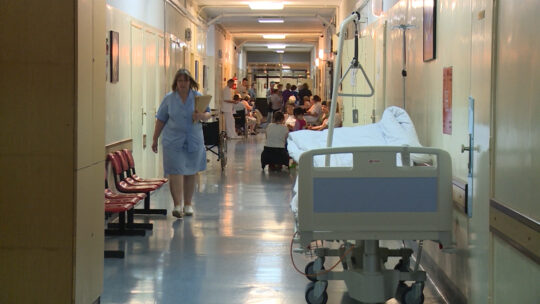
Many people in Europe and the world do not know about genocide and some do not wish to know, Human Rights Commissioner with the Council of Europe Dunja Mijatovic said in Strasbourg on Wednesday, opening the exhibition honouring the Srebrenica genocide victims.
Symbolically called ‘Srebrenica – Mothers’ long fight for justice’, the exhibition gathered representatives of the victims’ associations from the eastern Bosnian town, who lost their loved ones in the mass killing of the 1992-95 Bosnian war, which marks the 24th anniversary this July.
“I can only imagine how difficult this time of the year is for you and the other family members of the genocide victims as another 11 July approaches. I can only imagine how painful the memories are, and the suffering the genocide caused to you,” said Mijatovic pointing out the necessity of fighting against the genocide denial.
“You, mothers, are calling on the Council of Europe to mark 11 July as an official Remembrance Day of the Srebrenica Genocide. I join my voice to yours,” the Commissioner said in her speech adding that “for too long the international community has looked away.”
More than 8,000 Bosniak men and boys were killed in the UN-protected Srebrenica enclave in the days following July 11, 1995, and so far the remains of more than 6,600 have been found and buried.
Two international courts, the International Criminal Tribunal for the Former Yugoslavia (ICTY) and the International Court of Justice (ICJ), ruled that the massacre was an act of genocide.
International and regional courts have sentenced 45 people for what happened in Srebrenica to a total of more than 700 years behind bars.
But, despite the international courts’ rulings, Bosnian Serb leadership and Serbia's authorities have not recognised to date that the Srebrenica mass killings were an act of genocide.




